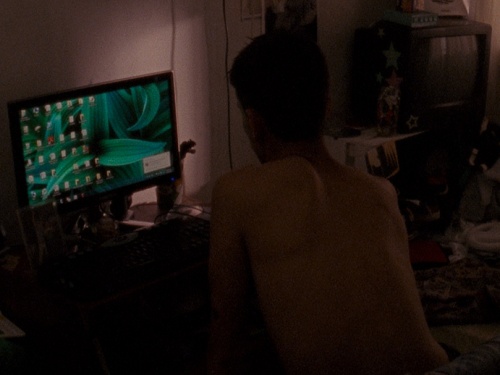Biting the Hand That Feeds: Bernard Rose's ivansxtc
After a prodigiously early start to his career - working for Jim Henson whilst still in his teens and directing a notorious music video for dance-pop powerhouse Frankie Goes to Hollywood in his early twenties - Bernard Rose gained recognition as a feature film director in the 1990s with a series of critical and commercial successes such as supernatural-slasher Candyman (1992) and Beethoven biopic Immortal Beloved (1994). Rose seemed set for a fully-fledged Hollywood career, but after an unpleasant experience with his 1997 adaptation of Leo Tolstoy’s Anna Karenina – Warner Bros. insisted the film’s running time be cut from 140 to 108 minutes – he shunned the studio system and returned to independent film production with his searing poison-pen letter to Hollywood: ivansxtc.
Loosely based on Tolstoy’s novella The Death of Ivan Ilyvch and drawing inspiration from Rose’s real-life agent Jay Maloney, himself an industry prodigy who committed suicide at the age of thirty-five after a lengthy struggle with cocaine addiction, ivansxtc. follows the last debauched days of Hollywood super-agent Ivan Beckman - played by Danny Huston with lizard-like relish - who after receiving some devastating news goes on one last alcohol, cocaine and prostitute-fueled binge around Los Angeles. Rose’s decision to shoot on the still relatively-new technology of handheld digital cameras gives the film a sleazy videotape aesthetic reminiscent of a red carpet exposé, whilst also creating a frenzied documentary-like immediacy as the camera stalks Beckman down hotel corridors, into and out-of limousines, and through Bel Air mansions of ill-repute. Crucially, shooting on the inexpensive digital format freed Rose from the financial obligations of a big-budget production – he was able to make a feature film without relying on a Hollywood studio’s money, and was therefore able to uncompromisingly satirize the industry without fear of offending his investors. The result is a film that pulls none of its punches, both blackly comic and surprisingly affecting, its depiction of the entertainment industry so venomous that it makes Robert Altman’s The Player seem like a rose-tinted view of Tinsel town.
In making the film Rose may have permanently alienated himself from the industry he was seemly destined to prosper in, an act many viewed as a form a self-immolation or career-suicide, but there is the sense throughout that Rose is exuberant in his reckless fall from grace. Danny Huston and Peter Weller similarly give performances so fearless and uninhibited that it’s clear they just no longer care what anyone thinks of them - as Weller’s character exclaims a midst a sordid hotel-room after-party: “Come on Beckman, kick it off -- we’re so bored of ourselves we’ve already been naked and put our clothes back on!”





